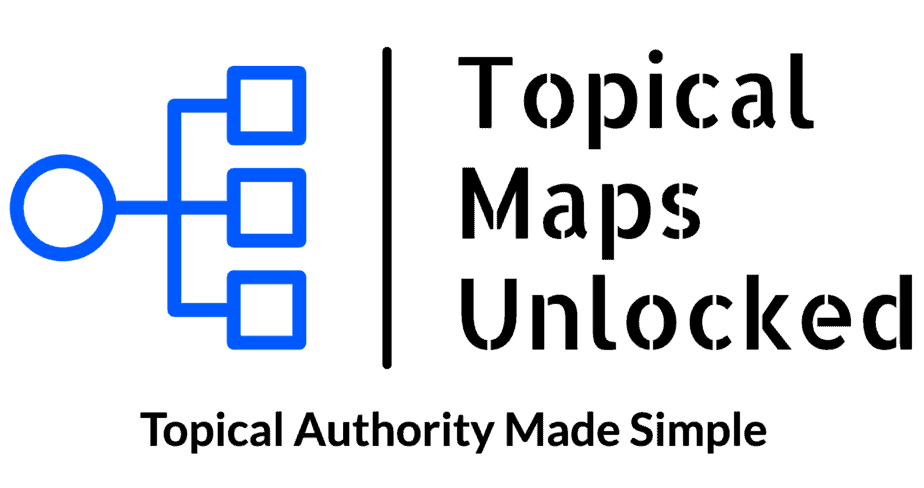Did you know that websites with high topical authority can earn up to 36.4% more organic traffic than those without? As a content creator or SEO professional, establishing expertise and building topical authority is crucial for success in the digital world.
That’s where Topical Maps Unlocked comes in – a comprehensive course that promises to teach you how to create and use topical maps to improve your Google rankings, engagement, and conversions.
As someone who is constantly striving for mastery in my field, I was intrigued by the idea of using topical maps as a tool for building authority. So, I decided to dive into Topical Maps Unlocked and see if it lives up to its promises.
In this article, I’ll share my thoughts on whether this course can truly help you establish yourself as a topical authority in your niche and increase your website traffic. Let’s get started!
Topical Maps Unlocked Review Key Takeaways
Streamlined Key Takeaways from the Topical Maps Unlocked Course Review
- All-Encompassing Curriculum: Extensive coverage from SEO basics to advanced topical map strategies in 32 comprehensive video lessons.
- Actionable Guidance: Direct, step-by-step tutorials ensure practical skills and immediate application for real-world SEO enhancement.
- Community and Support: Lifetime access to a dynamic private community for ongoing support, networking, and knowledge exchange.
- Versatile Learning for All Levels: Ideal for both SEO newcomers and seasoned marketers, enhancing skills through clear, adaptable content.
- Significant Site Improvements: Teaches how to build effective site structures that boost rankings, engagement, and conversions.
- Emphasis on Topical Authority: Focus on mastering topical authority to dominate industry-relevant topics, enhancing site credibility and authority.
- Great Value Investment: Includes video lessons, tools, and templates with no recurring costs, representing significant long-term value.
- Expert Guidance from Yoyao Hsueh: Led by Yoyao Hsueh, a seasoned SEO expert known for his leading topical maps service and straightforward teaching style, enhancing your ability to improve both new and existing websites.
These revised points encapsulate the core benefits of the Topical Maps Unlocked course, making it a potent tool for anyone looking to advance their SEO capabilities efficiently.
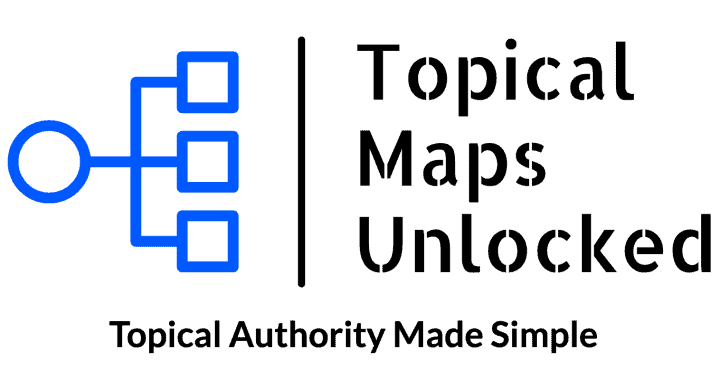
Overview of Topical Maps Unlocked
You’re in for a treat with this overview – it’s going to give you all the juicy details about how to take your website from meh to oh yeah, with increased traffic and higher engagement!
Topical Maps Unlocked is an A to Z course that teaches you how to create and use topical maps for SEO and traffic. It includes over 30 video lessons, templates, and access to a private community of marketers, SEO specialists, and content creators. The course is suitable for beginners as well as experienced professionals who want to establish authority in their niche.
Topical maps are visual representations of main topics, subtopics, and supporting content that help organize and present content logically and easily. By creating a winning topical map, you can improve your Google rankings, increase engagement on your site, and establish topical authority in your niche.
The course covers everything from researching keywords to creating site architecture and tracking success. One of the key benefits of using topical maps is that they help you create a content strategy based on relevance rather than just keywords.
This is because semantic search has changed the way Google ranks websites – it now looks at the overall relevance of a page rather than just individual keywords. By focusing on topics instead of just keywords, you can create high-quality content that resonates with your audience while also boosting your SEO efforts.
So if you’re ready to take your website’s performance up a notch, Topical Maps Unlocked is the perfect tool for building topical authority through strategic content creation.
What is a Topical Map?
Understanding how to visually organize and present content in a logical way can improve Google rankings, increase engagement and conversions, and establish credibility in a niche. This is where topical maps come into play.
A topical map is essentially a visual representation of the main topics, subtopics, and supporting content that make up your website’s information architecture. To fully grasp the concept of topical maps, it’s important to understand the idea of topic clusters and pillar content.
Topic clusters are groups of related topics that all link back to one central pillar page – or piece of cornerstone content – on your website. These clusters help signal to Google what your site is about, making it more likely for you to rank higher for related searches.
Pillar content serves as the foundation for each topic cluster and should be long-form, comprehensive pieces that provide an overview of the topic at hand.
Creating a topical map involves first identifying the main topics relevant to your business or industry. From there, you’ll want to break down those main topics into subtopics and supporting content pieces.
By doing this, you’ll create a clear roadmap for yourself when creating new content or updating existing pages on your site. Using a tool like a mind map can help visualize these interlinking relationships between topics and ensure that each piece of content supports the overarching theme or topic cluster within your site’s information architecture.
Benefits of Using Topical Maps
By implementing a topical map strategy, you can skyrocket your website’s ranking on Google, increase engagement and conversions, and establish yourself as an expert in your field – all without spending endless hours on keyword research or expensive advertising.
Topical maps help you organize and present content logically and easily so that users can quickly find the information they’re looking for. By focusing on user intent and optimizing your content for specific keywords within each topic, you’ll be able to create high-quality content that resonates with your audience.
One of the key benefits of using a topical map is improved SEO rankings. When you structure your website according to topics, you make it easier for search engines to understand what your site is about. By analyzing user behavior through competitive analysis and tracking success metrics such as bounce rate and time spent on page, you can identify important topics for SEO and adjust your strategy accordingly.
With a well-optimized topical map in place, you’ll be able to rank higher in search results pages (SERPs) for relevant keywords.
Another benefit of using topical maps is increased engagement and conversions. When users land on your site, they want to find information quickly without having to navigate through irrelevant pages. With a well-structured site architecture based on topics, users will stay longer on your site because they’ll find exactly what they’re looking for. This leads to higher engagement rates which translate into more conversions over time.
By creating a winning topical map using internal linking strategies and anchor text management techniques, you’ll be able to keep visitors engaged throughout their entire journey across multiple pages on your site.
In conclusion, by utilizing a topical mapping strategy with an emphasis on SEO optimization, keyword research, competitive analysis techniques and user intent-driven content creation practices; businesses can save valuable resources while achieving greater success online than ever before possible! So don’t wait any longer – start building out your own personalized topicals roadmap today!
Course Content
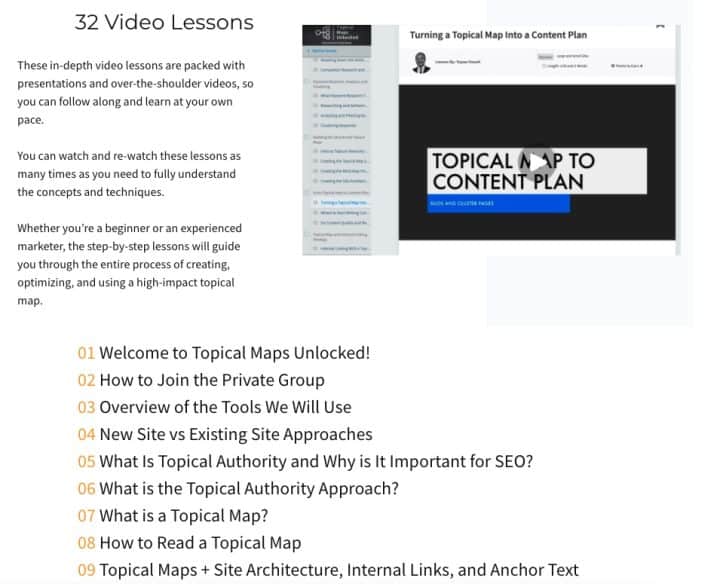
The course content of Topical Maps Unlocked is comprehensive and specifically designed to enhance website ranking, organic traffic, and authority. The course provides an in-depth understanding of researching and analyzing competition, which will help identify the right keywords that can be used to optimize content. This will eventually improve website ranking.
Moreover, creating a site architecture and content plan is vital for a successful SEO strategy. The course teaches how to create a topical map that includes main topics, subtopics, and supporting content. It helps organize and present the content logically while creating internal linking opportunities.
Finally, mastering internal linking and anchor text management are essential for building authority websites. By optimizing the use of internal links with appropriate anchor texts, it ensures that users can navigate through your website easily while search engines understand the context of each page on your site better.
By following all aspects taught in this course using topical maps, one can transform their online presence by establishing themselves as authoritative sources in their respective niches.
Who Can Benefit?
You may be surprised to learn that this course is suitable for anyone with a website, from beginners to experienced professionals, and can lead to improved Google rankings and higher engagement rates. With the guidance of Topical Maps Unlocked, you’ll learn how to create topical maps that help organize your content logically and easily.
By identifying important niche topics and understanding user intent, you can optimize both onpage and offpage optimization strategies to achieve better results. Here are four reasons why this course is beneficial for anyone looking to build topical authority:
- Researching and gathering keywords: You’ll learn how to identify the right keywords for your niche topics by using tools like SEMrush, Ahrefs, or Moz Keyword Explorer.
- Creating site architecture and content plan: The course provides templates that enable you to map out your website’s structure in a way that drives traffic towards specific pages.
- Mastering internal linking and anchor text management: Internal linking helps search engines crawl your site more effectively while also improving user navigation.
- Creating topical maps for existing sites: Even if you already have an established website, the course teaches you how to transform it into a highly organized hub of topical information.
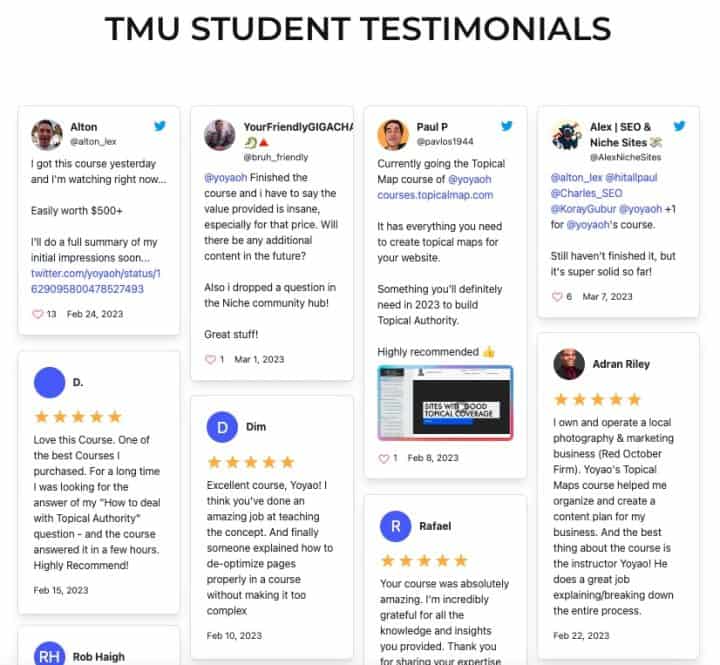
Topical Authority vs. Low-Competition Keyword Strategy
If you want to stand out in your niche and dominate the competition, it’s time to ditch the low-competition keyword strategy and focus on becoming an expert in every aspect of your topic.
While targeting low-hanging keywords with little competition may seem like a quick win, it won’t help you establish topical authority or build long-term success. To truly become a leader in your field, you need to focus on creating content with depth and breadth that fully covers each topic.
By using a topical map, you can ensure that every subtopic is covered in-depth while maintaining a logical structure for your content. This not only helps with user engagement but also helps search engines understand the relationship between different pages on your site through internal linking.
By demonstrating expertise across all aspects of your topic, you will be seen as an authority by readers and search engines alike.
Building topical authority requires more than just targeting low-competition keywords. It requires creating comprehensive content plans that cover all aspects of a topic through the use of topical maps. By focusing on content depth and internal linking strategies, you can establish yourself as an expert in your niche and gain higher rankings and engagement from users.
Course Details
Imagine having a step-by-step guide that takes you from researching keywords to creating a comprehensive content plan, all while being supported by a community of experts and constantly updated with fresh techniques – that’s what you get with the Topical Maps Unlocked course.
Not only does it teach you how to create topical maps for improved SEO rankings, but it also focuses on building topical authority. The course provides spreadsheet templates and tools, as well as a private community of marketers, SEO specialists, and content creators who can offer guidance and support.
The Topical Maps Unlocked course is not just about identifying important topics for SEO; it also emphasizes site architecture and user experience (UX). The course teaches how to use latent semantic indexing (LSI) to help Google understand the context of your content. Additionally, it covers algorithm updates so that you can adjust your strategy accordingly.
By mastering internal linking and anchor text management, you can boost the value of your content in Google’s eyes.
By taking this course, you will learn how to transform a topical map into a comprehensive content plan. You’ll be able to identify gaps in your existing strategy and make necessary adjustments based on current best practices. This approach goes beyond just targeting low-competition keywords – it aims to establish topical authority through thorough research, planning, and execution.
With lifetime access to the course materials and regular updates with fresh techniques, you’ll be equipped with the knowledge needed to stay ahead of the competition.
Researching and Gathering Keywords
Now it’s time to dive into researching and gathering keywords – this section will show you how to find the right words to help your website rank higher in search engines.
As an SEO professional, I know that keyword research is a crucial step towards building topical authority. It all starts with identifying the main topics you want to cover on your website. Once you have those in mind, use tools like Google Keyword Planner or SEMrush to generate a list of related longtail keywords.
But don’t stop there – also consider using latent semantic indexing (LSI) keywords, which are words and phrases related to your main topic but not necessarily direct synonyms. This can help improve user experience (UX) by providing more context for your content.
For example, if you’re writing about ‘healthy eating,’ LSI keywords could include ‘nutrition,’ ‘diet,’ and ‘recipes.’
Keyword research is an ongoing process that requires constant monitoring and tweaking. You may find that certain keywords perform better than others, or that new opportunities arise as trends change.
By staying on top of keyword research, you can ensure that your website remains relevant and authoritative in its niche. So keep exploring different tools and methods for finding the right keywords – it’s one of the most important steps towards building topical authority through SEO!
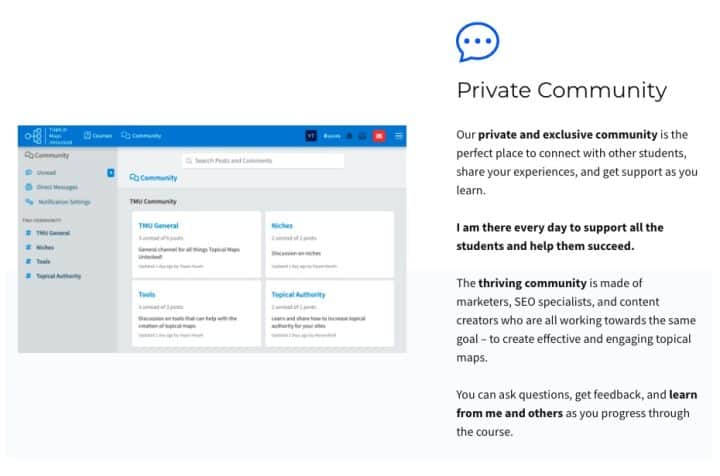
Analyzing Competition for Information Gaps
As I delve into analyzing my competition for information gaps, I uncover hidden insights and untapped opportunities to differentiate myself in the market. By studying what my competitors are doing right and wrong, I can gain a better understanding of what topics they’re covering and where there might be room for improvement. This is crucial when it comes to building topical authority in my niche.
One way to analyze competition is by looking at user-generated content (UGC). This type of content can provide valuable insights into what people are searching for within a specific topic. By analyzing UGC, I can identify patterns in language and topics that users are interested in. From there, I can incorporate these patterns into my own content strategy, using latent semantic indexing (LSI) techniques to improve the relevancy of my pages.
Overall, analyzing competition for information gaps is an essential step towards building topical authority. It allows me to identify gaps in the market that no one else is addressing while also learning from successful competitors. By incorporating these insights into my own content strategy, I can set myself apart from others in my niche and establish myself as an expert on the topic.
Becoming a Topical Authority
You’re on your way to becoming an expert in your niche by mastering techniques for researching keywords, analyzing competition, and creating a content plan that fully covers important topics. But how do you take it to the next level and become a true topical authority?
One key aspect is incorporating latent semantic indexing (LSI) into your content. This means using related keywords and phrases to support your main topic and demonstrate a deep understanding of the subject matter.
Additionally, optimizing for user experience (UX) and crawlability by using schema markup can help establish you as an authoritative source of information in search engines.
Becoming a topical authority requires ongoing effort and dedication. It means staying up-to-date with industry trends, regularly updating content, and constantly improving the overall quality of your website.
By consistently implementing these practices, you can establish yourself as a trusted source of information in your niche, leading to higher rankings, increased traffic, and ultimately greater success online.
Whether you have an online business, going out on your own as an entrepreneur, or starting an affiliate marketing site, you need to build topical authority to survive long term.
Frequently Asked Questions
How long does it take to see results from using a topical map for SEO?
I remember anxiously waiting for the results of my topical map SEO strategy. It was a nerve-wracking experience, but the wait was worth it.
After just a few weeks, I saw an increase in organic traffic and higher rankings on Google. The key to success is understanding that using a topical map for SEO is not a magic solution; it takes time and effort to see results.
However, with proper research, analysis, and implementation of your topical map plan, you can start seeing improvements within three to six months. The data-driven approach of this strategy allows you to track progress and adjust accordingly until you achieve mastery in your niche.
Can topical maps be used for non-website content, such as social media posts or videos?
Yes, topical maps can definitely be used for non-website content such as social media posts or videos. Using a topical map to organize ideas and content across different platforms can help establish consistency and reinforce your expertise in a particular topic or niche.
By mapping out the main topics, subtopics, and supporting content relevant to your brand or business, you can easily create a cohesive content plan that aligns with your overall marketing strategy. Additionally, using internal linking and anchor text management techniques within your social media posts or videos can further strengthen the topical authority of your brand or business.
Are there any limitations to using a topical map for content planning?
As a content creator, I’ve found topical maps to be an invaluable tool for planning and organizing my content. However, there are some limitations to using a topical map for content planning.
For one, it can be time-consuming to research and gather all the necessary information for each topic and subtopic. Additionally, it’s important to remember that a topical map is just a guide and not set in stone – sometimes you may need to pivot your content strategy based on new developments or changes in your industry.
Nonetheless, with careful planning and execution, utilizing a topical map can help establish your authority in your niche and drive higher engagement and conversions.
How frequently should a topical map be updated to stay relevant?
Did you know that 75% of consumers expect brands to provide personalized content based on their interests? That’s why it’s crucial to update your topical map frequently in order to stay relevant and maintain your audience’s attention.
Updating your topical map not only ensures that you’re covering the latest trends and information in your industry, but also allows you to adjust your content strategy as needed. By consistently analyzing and optimizing your topical map, you can establish yourself as an authority in your niche while providing valuable, personalized content to your audience.
Can topical maps be used for local SEO strategies?
Yes, topical maps can definitely be used for local SEO strategies. By organizing and presenting relevant content in a logical manner, topical maps can help businesses establish authority in their local niche and improve their Google rankings.
Through the course Topical Maps Unlocked, beginners and experienced professionals alike can learn how to research and gather keywords, analyze competition, create site architecture and content plans, track success, create optimized topical maps, identify important topics for SEO, master internal linking and anchor text management, and transform their map into a content plan.
With templates and tools provided, as well as access to a private community of marketers, SEO specialists, and content creators led by an expert in topical mapping and SEO techniques regularly updated with fresh methods, anyone with a website looking to boost their local presence should consider incorporating topical maps into their strategy.
Topical Maps Unlocked Review Conclusion
Overall, I found Topical Maps Unlocked to be an incredibly comprehensive and useful course for anyone looking to build topical authority in their niche. The course covers everything from the basics of creating a topical map to advanced strategies for analyzing competition and identifying information gaps.
One interesting statistic that stood out to me was the fact that websites with a clear topical focus tend to rank higher on Google than those without one. This underscores the importance of developing a strong understanding of your niche and using tools like topical maps to create content that’s both relevant and valuable to your target audience.
In conclusion, if you’re looking to establish yourself as an expert in your field and improve your website’s visibility on search engines, Topical Maps Unlocked is definitely worth checking out. With its in-depth lessons, practical tips, and lifetime access to course updates, it provides everything you need to start building topical authority today.
